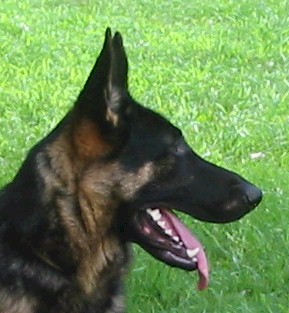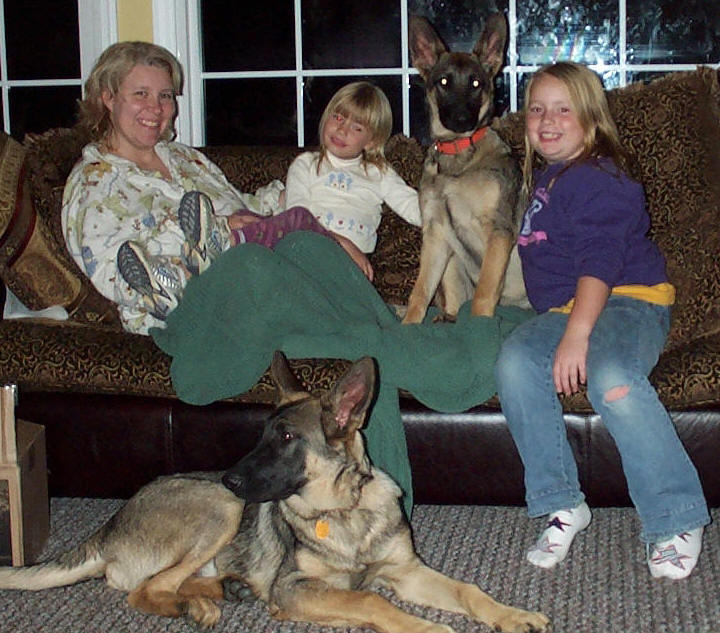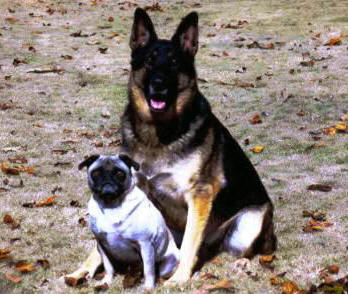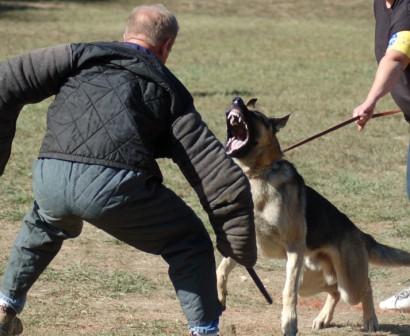 |
Protection Training A Veterinarian's Perspective |
|||||||||||||||||
|
Take a look at the page below to see some orphans that need a loving home!
|
||||||||||||||||||
|
Last updated 11/7/10
Do You Need a Protection Trained Dog? The first thing to consider is:
Do
you really want a protection trained dog. A dog is a living being and has certain
needs that must be met. Even
the best behaved dog is going to be some extra work. So, you
need to be willing to have a dog in your life, and put up with the
little inconveniences that go with it. It is also important to
remember owning a protection dog carries with it more responsibility
than owning an ordinary house pet. How much time can you put
in to maintaining the dog's training? Be 100 percent sure that
you are willing and able to provide for the needs of a protection
trained dog. AND, Be sure of what level of training you are
prepared to undertake. There are different levels of protection training. Each person has to determine what level of training will be appropriate for his or her situation and family. Each person's self protection needs are different --
Whatever level of training you chose to take your dog to, it must be emphasized that you must also acquire the special training necessary to effectively control and use that weapon. Is your Dog Qualified for Training and are You Qualified? Do all dogs have the aptitude for this kind of training? Not necessarily. The dog must have the right mix of a stable, sociable, confident temperament, as well as courage and tenacity. Do all people have the aptitude for this kind of training? Again, not always. A good candidate must be extremely responsible and seriously dedicated to the commitment of training their dog. Also, this individual must take this commitment seriously. It is okay to have a personal protection dog, just like it is okay to have a gun. But, just as it is inappropriate to carelessly handle your gun, it is just as inappropriate to carelessly handle a protection trained dog. Many people express concern that protection training will "change" their dog's temperament. If training is performed properly, it will not alter the dog's character nor temperament. Training is meant, however, bring out the dog's natural instinct to be protective. The dog learns all of the necessary steps for defense. The training should be enjoyable to the dog because to the dog, training becomes a game. The reward of the game is his ball, his toy, or even food. If the dog does not like "playing the game", he should not be trained for this type of work. A submissive dog who is "force trained" will turn into a fear biter. Likewise, if the dog is too aggressive, it too should not be protection trained. There is a big misconception out there about protection, mainly, because some trainers have no idea how to properly train protection dogs. Protection should start as a game, conditioning the dogs to "Bark" and "Bite" in a rewarding way. A lot of trainers focus on defensive agitation and this will only create a mean, unstable dog. Stay away from anything negative. Protection should be a positive experience. Every dog is born with protective instincts. The goal is to simply show the dog
In this way, your dog becomes even more stable than what he was without protection training. The dogs out there that are biting people (like neighbors, kids, and mailmen) are often insecure and or confused. Confidence is the key to a dog’s stability and confidence building is what protection training should be all about. Choosing a personal protection dog A Trainer Who Can Understand and Meet Your Needs... Here at Sequoyah German Shepherds, we train with Tennessee Valley Working Dog Association. Protection training is not something to undertake lightly though, so, do your research! Make sure that the trainer you use understands what you want from your dog.
In Conclusion.... Personal protection dogs must be chosen well and properly trained in order to be successful. It takes patience, perseverance, and discipline in order for these personal protection dogs to accept the responsibility of protecting. When he does though, he will not protect out of fear or anger, he will protect because he has been commanded to protect. Most people hope that if challenged, their dog would protect them. That isn't always true. Training for any situation is the only way to know for sure. There is nothing like the secure feeling that a trained personal protection dog can give you and your family. When put to the test, there is no guessing about what he will do and you will find yourself with real peace of mind.
|
 The
family protection dog must be good with the whole family, especially
with the kids!
The
family protection dog must be good with the whole family, especially
with the kids! The
dog must be good with other animals that are part of the family!
The
dog must be good with other animals that are part of the family! The
family protection dog protects his territory against possible
intruders or strangers!
The
family protection dog protects his territory against possible
intruders or strangers!